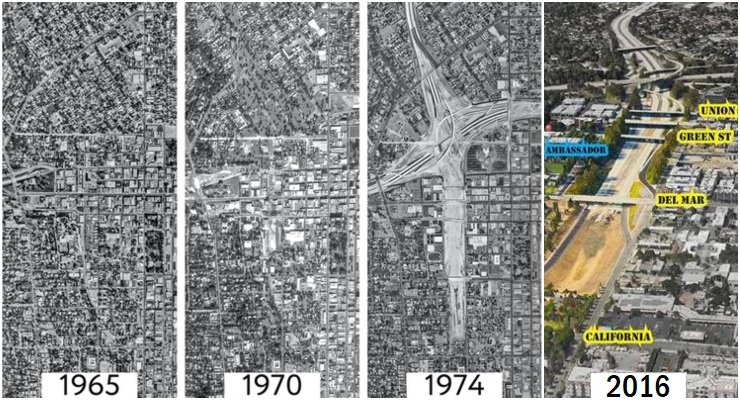Local historian and community advocate Roberta Martinez was the featured guest at the Progressive Discussion Group’s Friday morning meeting where she painted the picture of Latino life in Pasadena from yesteryear – a time in local history with parallels to today’s political climate.
Many might be surprised to learn that Pasadena’s largely forgotten history of Latino life in the early part of the 20th century included deportations by the truckload, and effectively segregated schools within the Pasadena Unified School District, Martinez said.
Martinez, who is also a lecturer, television producer, city commissioner, trustee of the Armory Center for the Arts, and advisor for the Pasadena Historical Museum and Pasadena Unified School District, is the author of the 2009 book, “Latinos in Pasadena,” published by Arcadia Publishing.
“I think the first thing that’s maybe most important is that the experience of Latinos here in Pasadena is very long term and is very complex. Given the proximity to Mexico, there has been a huge impact in the interaction that has taken place regarding the border and the workforce that in various eras was brought from Mexico or came from Mexico,” said Martinez.
Her research is focused primarily on the history in Pasadena three groups of people, specifically Mexicanos (those who remain Mexican citizens), Mexican-Americans (those who become U.S. citizens) and the larger group of all Latinos (those of Dominican, Cuban, Mexican, Puerto Rican, South or Central American or other Spanish culture or origin).
“It’s good to know the complexity of the history especially because so many of our community are dealing with the issue of deportations yet again,” Martinez said. “It’s important to know what happened before as we look to the future to figure out what we are going to do.”
Her book “Latinos in Pasadena” tells the story of Mexican Americans and other Latinos who commonly worked for Pasadena’s rich and famous but whose legacies have been only sparsely preserved through the generations even though these citizens often made remarkable community contributions and lived in close proximity to their employers.
Throughout the late 1920’s and early 1930’s during the Great Depression, mass deportations of Mexicanos in Southern California were carried out by federal immigration authorities.
“You had this forced push to have people ‘go back to Mexico’ mentality. One of the things that is so impactful about what is taking place [today] is you have young people who have lived all of their lives in the United States. They only speak English. All of the sudden there’s box cars that are sent with people to Mexico,” said Martinez.
Out of the reported one million people that were deported to Mexico during the Great Depression, sixty percent were actually United States citizens, according to Martinez.
The Pasadena Unified School District also established two “Mexican Schools” during this era, further segregating the Latino population.
“Pasadena never had segregated schools for blacks, as such,” said Martinez. “But they did have two schools that were established as Mexican schools.”
Martinez said that nearby cities such as El Monte and Anaheim created similar schools during the same time period.
“Latinos in Pasadena” tells a fuller story of the Pasadena area from vintage images and the accompanying information that Martinez culled from anecdotes, master’s theses, newspaper articles, formal and informal oral histories, and the Ethnic History Research Project compiled for the City of Pasadena in 1995.
Among the stories told is that of Antonio F. Coronel, a one-time Mexican Army officer who served as California state treasurer from 1866 to 1870 and whose image graced the 1904 Tournament of Roses program.
The author gathered these vintage images from local families and the archives of the Huntington, Bancroft, Braun, Pasadena, Los Angeles, and University of Southern California libraries.
“I think each of us has a unique gift that we can share with our community. Part of what I enjoy doing is trying to bring public history and share it as broadly as possible” Martinez said. “People may not know about Mexican, Mexican-American, Latino — and Swedish history. as far as that goes — I love to figure out opportunities to kind of re-weave the histories together because we have a shared history here in Pasadena and the San Gabriel Valley even though we have different stories. The more we know other people’s stories the better we can interact with each other,” said Martinez.
Martinez has been writing her blog, “A Pasadena Latina,” since 2010. She is currently employed as an independent consultant and researcher.
Martinez’s new television show, “Casa Martínez – Música y Mas”, airs on the Arroyo Channel (Charter Channel 3, ATT Uverse 99 Pasadena) on Tuesdays, 7:00 am and 7:00 p.m and Wednesdays 12:30 a.m and 3:00 p.m. You can watch Casa Martínez channel live stream via: www.ArroyoChannel.tv
“The show’s mission is to present the diversity that exists within Latino Culture, to explore connections that exist with other cultures, to address the influence of the arts, the complexity of identity, and to highlight cultural topics”.
The Progressive Discussion Group which hosted Martinez meets on the first and third Fridays of every month in the Du-Par’s back room at 214 S. Lake Avenue in Pasadena to discuss a designated topic. Meetings are open to anyone wanting to attend. DuPar’s issues separate checks to attendees, so you can have coffee, breakfast, or just thoughtful discussion of progressive issues.
[Editor’s Note: This article has been corrected. Removed was a statement which erroneously said that the forums are co-sponsored by ACT Pasadena. That is incorrect.]














 0 comments
0 comments


